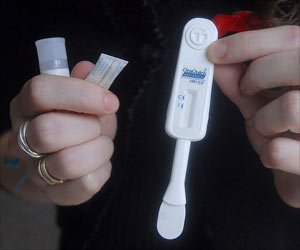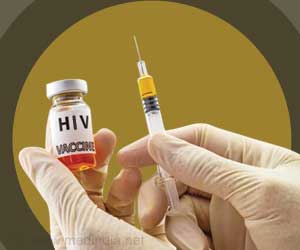An experimental drug made from tick saliva may hold promise as a potential treatment for reducing HIV-linked heart disease risk.

‘Tick saliva treatment has the potential to improve the clinical management of HIV-infected patients and help them to live longer and healthier.’





Furthermore, the researchers found that Ixolaris, an experimental drug isolated from tick saliva and previously tested to treat blood clots in animals, successfully reduced the inflammation in monkeys infected with SIV, the primate form of HIV."People are living long, fruitful lives with HIV thanks to tremendous strides in antiviral treatment regimens, however those lives are being cut short due to perplexingly high rates of heart disease," said co-senior author Ivona Pandrea, M.D., Ph.D., professor of pathology in Pitt's Center for Vaccine Research.
"By uncovering one of the cellular mechanisms driving the heart disease, we can look for medications--such as Ixolaris--that specifically target and disrupt that mechanism."
Co-senior author Irini Sereti, M.D., of the NIH's National Institute of Allergy and Infectious Diseases (NIAID), tested blood samples from people without HIV, people with HIV whose infections were well-controlled by antiretroviral therapy and people with HIV who weren't on the medications.
The researchers found an elevated number of immune cells called monocytes that expressed high levels of the 'tissue factor' protein, which is associated with blood clotting and other inflammatory proteins, in the blood from people with HIV, regardless of how well their infection was controlled.
Advertisement
The scientists then exposed the human blood samples to Ixolaris and observed that the drug blocked the activity of tissue factor. When tested in a small group of monkeys during early SIV infection, the treatment significantly lowered the levels of inflammatory proteins linked to cardiovascular disease.
Advertisement
More studies are needed to test the drug's safety and interaction with other drugs that are used for HIV patients. Ixolaris has not been tested in humans and the results could differ, the researchers also cautioned.
"This treatment has the potential to improve the clinical management of HIV-infected patients and help them to live longer, healthier lives with HIV," said Pandrea. "That, and other therapies that may arise from targeting the inflammation pathway we discovered, are exciting avenues for future research."
Source-Eurekalert














